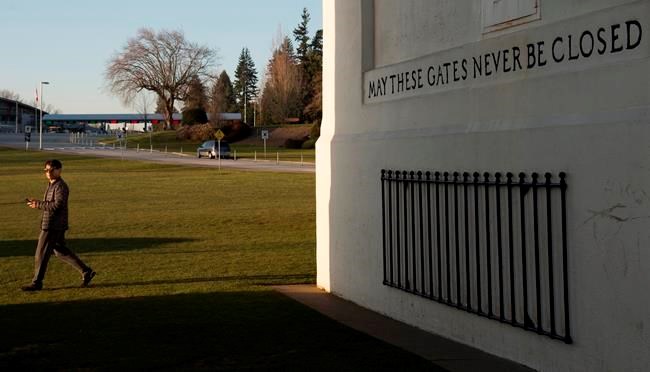WASHINGTON — Canada's shared border with the United States is now closed to casual, non-essential travel in a bilateral effort to slow the spread of COVID-19 in North America.
A mutual ban on recreational and incidental travel in both directions, like vacations and cross-border shopping trips, went into effect across the country at midnight ET.
Agents with both the Canada Border Services Agency and U.S. Customs and Border Protection have been instructed to block tourists and bargain-hunters, while letting through long-haul truckers, health professionals and anyone else needing to cross for work.
Deputy Prime Minister Chrystia Freeland has acknowledged the agreement was hastily reached, given the urgency of the global pandemic, and that there could be hiccups as the restrictions begin take hold.
She's calling on Canadians and Americans alike to be patient under the circumstances and is urging anyone who doesn't need to travel to stay put.
Public Safety Minister Bill Blair says truckers, nurses and others being allowed over the border are being encouraged to take all the necessary precautions against being exposed to the novel coronavirus, which include extensive hand-washing, steering clear of groups of people and monitoring for symptoms.
"These are extraordinary times," Freeland said Friday, acknowledging that both countries have been moving at an urgent pace that would be "neither possible nor advisable" under normal circumstances.
"This is a global pandemic, so we need to act with agility and alacrity."
Although the ban does not apply to cross-border trade, businesses that depend on ready access to both countries are watching nervously as the restrictions take effect.
The Canadian Chamber of Commerce is urging both the federal and U.S. governments to keep a close eye on the border and act quickly if there are signs that people or shipments that need to get through are being turned away.
"I have never had just the sheer volume of emails, phone calls, text messages from members, flagging concerns," said Mark Agnew, the chamber's director of international policy.
"There is going to be an element of probably getting it wrong along the way."
The chamber is especially nervous about service providers, Agnew said — particularly technicians who keep high-tech health equipment in good working order, as well as business executives who can't do everything over the internet and rail and shipping personnel who often have to "reposition" by travelling by car over the border in order to operate a train or a vessel.
Students who hold valid visas, temporary foreign workers and anyone with valid work responsibilities are to be allowed to cross.
Secretary of State Mike Pompeo said the border restrictions would be in place for the next 30 days, subject to change depending on the state of the pandemic, and would not apply to those travelling "for work or other essential purposes."
"This will last as long as it has to, to protect the American people," he said.
This report by The Canadian Press was first published March 21, 2020.
The Canadian Press



